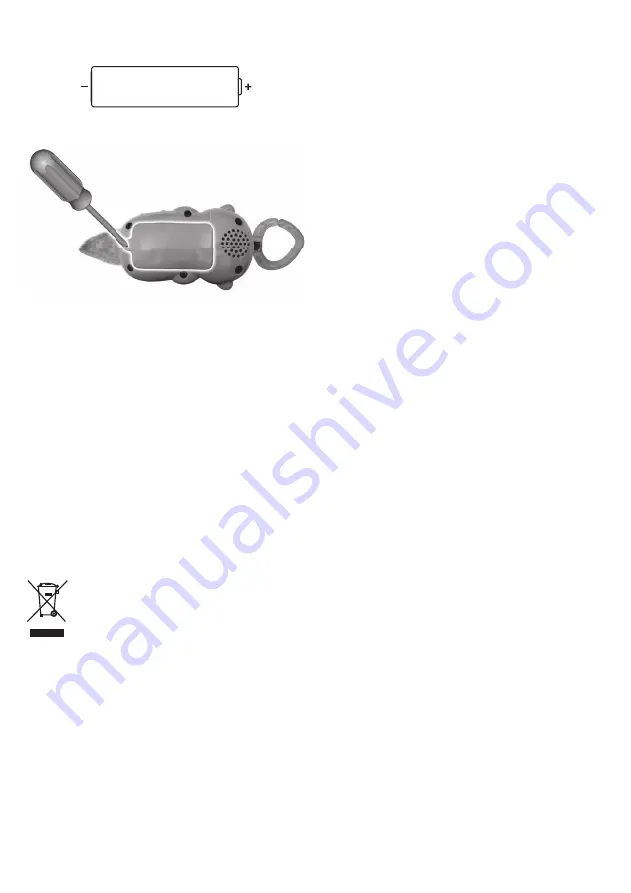
3
BATTERY INSTALLATION
Protect the environment by not
disposing of this product or any
batteries with household waste.
This symbol indicates that this
product shall not be treated as
household waste. Check your
local authority for recycling
advice and facilities.
Battery Safety Information
In exceptional circumstances, batteries
may leak fluids that can cause a chemical
burn injury or ruin your product. To avoid
battery leakage:
• Do not mix old and new batteries or
batteries of different types: alkaline,
standard (carbon-zinc) or rechargeable.
• Insert batteries as indicated inside the
battery compartment (+ and -).
• Remove batteries during long periods
of non-use. Always remove exhausted
batteries from the product. Dispose of
batteries safely. Do not dispose of this
product in a fire. The batteries inside
may explode or leak.
• Never short-circuit the battery terminals.
• Use only batteries of the same or
equivalent type, as recommended.
• Do not charge non-rechargeable batteries.
• Remove rechargeable batteries from the
product before charging.
• If removable, rechargeable batteries are
used, they are only to be charged under
adult supervision.
For longer life, use
alkaline
batteries.
• Locate the battery compartment door
on the back of the musical otter.
• Loosen the screw in the battery
compartment door with a Phillips
screwdriver and remove the door.
• Insert two, new AA (LR6)
alkaline
batteries.
• Replace the battery compartment
door and tighten the screw. Do not
over-tighten.
• If the musical otter begins to operate
erratically, you may need to reset the
electronics. Slide the power-volume
switch off and back on.
• When sounds or lights from the musical
otter become faint or stop, it’s time for
an adult to change the batteries.
1,5V x 2
AA (LR6)












